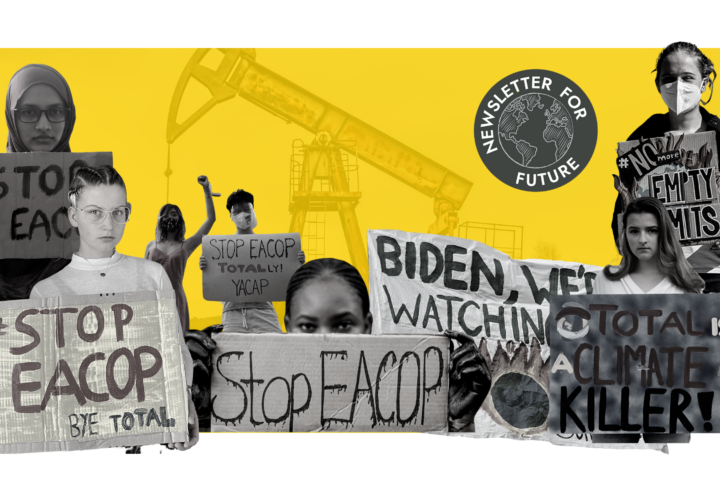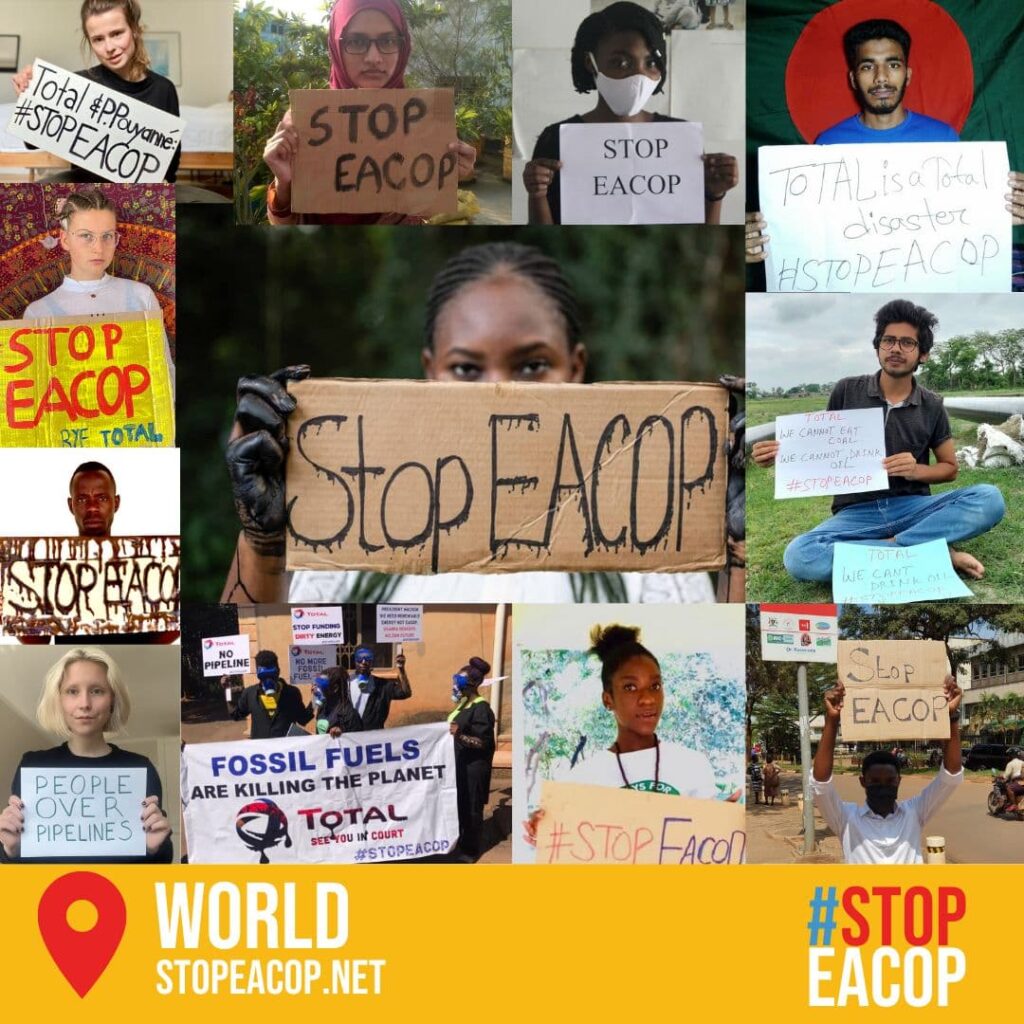In April and May 2021, activists around the world took to the streets and airwaves once again to fight for meaningful climate action from those in power — standing up to world leaders at the Biden Climate Summit, the courts of the European Union, and to climate-killer-corporations at company meetings.
The Biden Climate Summit, also known as the Leaders Summit on Climate, was a virtual event that took place from the 22nd to the 23rd of April, in time for the annual Earth Day celebrations. The 40 world leaders, many of whom were from the worst-polluting countries, spoke about the ongoing climate mitigation efforts in their countries and some of their plans for the future. United States president Joe Biden promised to reduce his country’s dependence on fossil fuels, and help other countries to do the same. In line with this promise, the Biden administration has pledged to halve its greenhouse emissions by 2030.
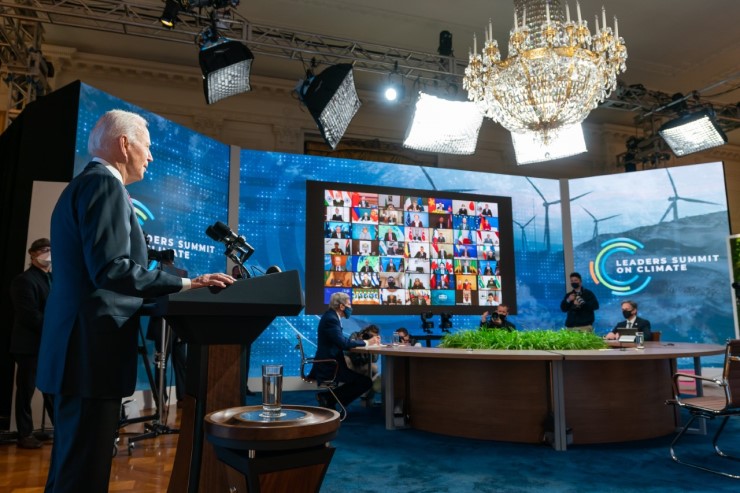
However, as ActionAid USA director Brandon Wu stated in the COP26 Coalition’s International Press Conference for Climate Justice, “Our analysis shows that the U.S. fair share is the equivalent of 195% emissions reductions by 2030. Anything less than doing our fair share means that the United States will be giving up on the goal of limiting global temperature rise to 1.5 degrees celsius, thus condemning millions around the world to try to cope with increasingly devastating climate impacts that they had little or no role in causing.”
Supposedly, the aim of this conference was to bring together world leaders to discuss the impacts climate change has on their country’s potential and what they are doing, and will do, about it. However, there were only 40 countries involved, and many of the countries most impacted by the climate crisis were not invited to the summit. A greater effort needs to be made to include BIPOC, MAPA (Most Affected People and Areas) and youth in these discussions and delegations as critical decisions on our planet’s present and future are being made in these spaces. In the fight against climate change, it is crucial to include everyone — not just world leaders — in laying the groundwork for a sustainable future.
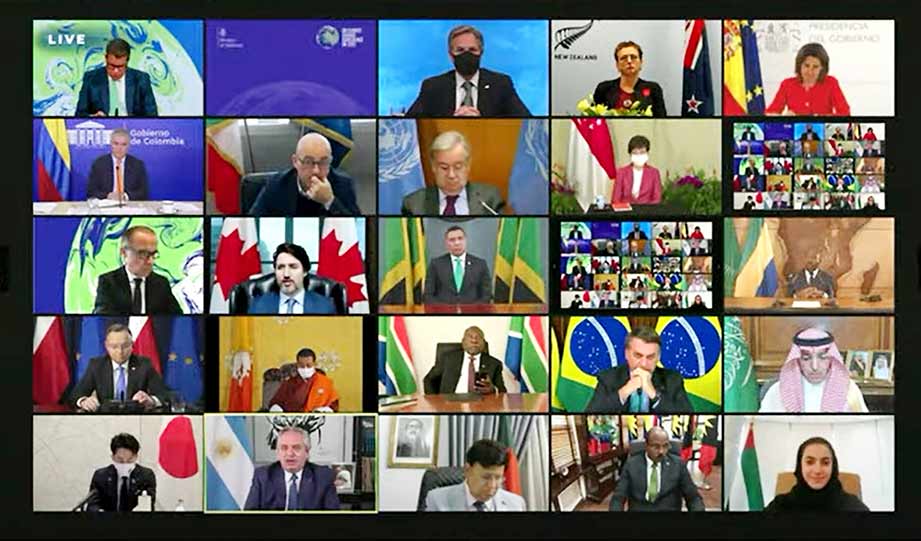
In the lead-up to the summit, activists from many of the countries involved called on their governments to take advantage of the opportunity and commit to climate action on the international stage. Activists in Argentina released an open letter signed by over 150 environmentalist organizations, while statements were released by FFF groups in Canada, Poland, Argentina and Mexico with demands such as restoring Indigenous sovereignty over their lands in Canada and protections for climate refugees from Mexico.
Fridays For Future also held a Mock Climate Summit, addressing the issues and topics that were not discussed by the countries’ representatives and giving activists from the countries not involved the opportunity to speak truth on the reality of climate change in their countries. The campaign, called #NoMoreEmptySummits, featured a mock summit online, physical actions, and a petition written by FFF MAPA – all calling for no more empty summits where only discussions are held and little to no action comes out. The mock summit included over 40 countries – more than the Leaders’ Summit on Climate.
On top of this, the USA is far from the only wealthy nation failing to pull its weight when it comes to climate action. The EU Climate Law is another prime example: setting a target of 55% ‘net’ emissions reduction by 2030, far less than the 65-80% absolute reduction which scientists say is necessary, and failing to even mention stopping fossil fuel subsidies or protecting the right to climate action.
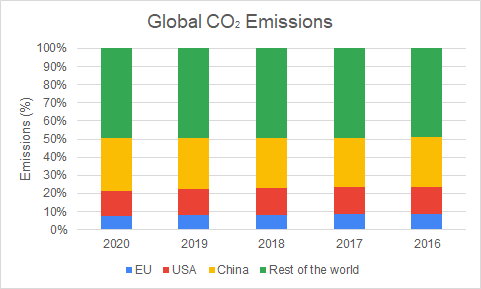
In fact, despite Global North nations being responsible for the vast majority of the world’s emissions, not one of them has established sufficient targets to stay under the essential warming limit of 1.5oC.
However, it isn’t all negative. For every crooked climate law there’s a team of activists fighting to improve it, and this April one of those teams – a group of nine youth activists supported by various environmentalist NGOs – won a decisive victory. In a move which Fridays for Future activist Line Niedeggen called “a turning point in climate action”, the Federal Constitutional Court ruled that the government’s climate targets were incompatible with the constitution. These targets were insufficient to meet the Paris Agreement’s 1.5oC limit, and as such restricted the freedom of future generations by condemning them to an unlivable planet.
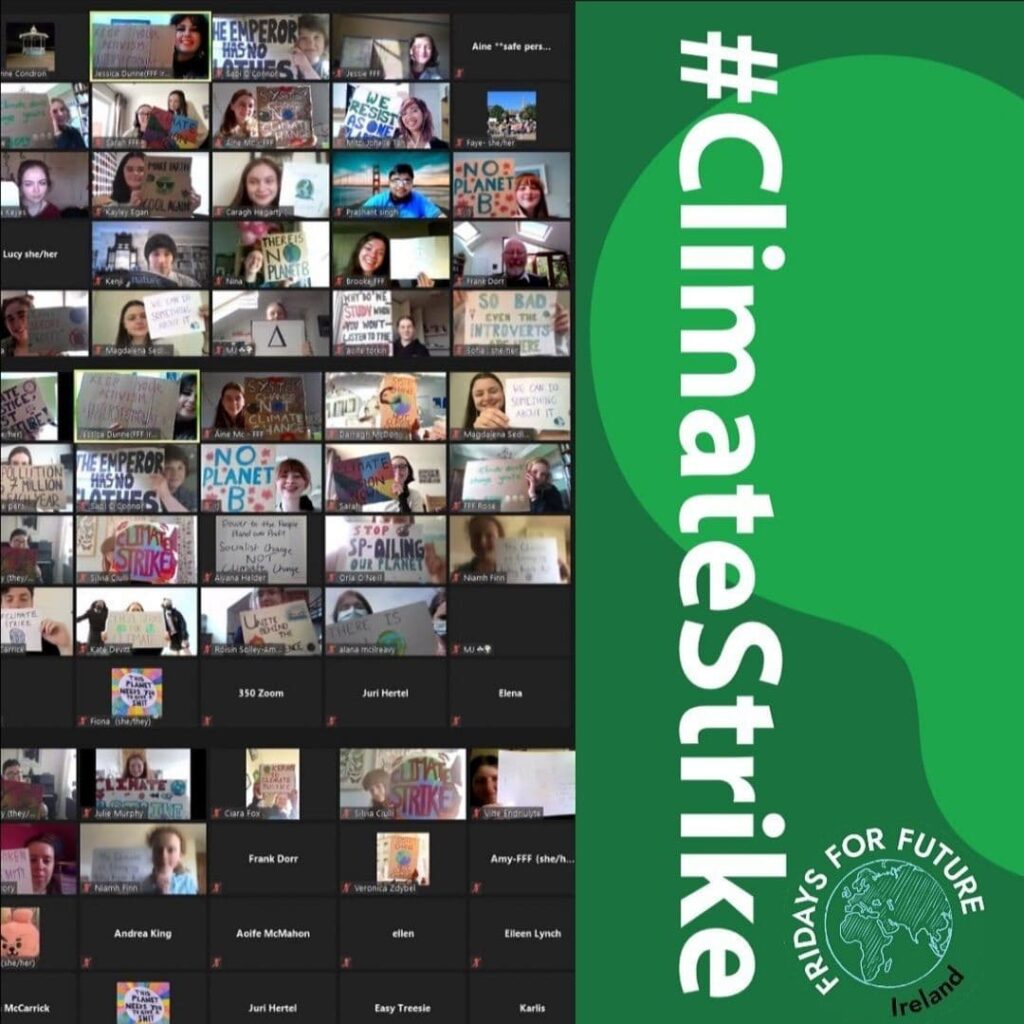
Meanwhile, other Global North activists have been taking action against their government’s empty promises, such as Fridays for Future Ireland’s massive Zoom strike on the 23rd of April. Irish strikes also took place in May calling for the government to support a global ban on fracking, while in Brazil, six youth activists launched a court case against their government for failing to set climate goals in line with it.
Fortunately, activists aren’t willing to let these companies get away with hiding their climate crimes, with campaigns continuing throughout April and May against greenwashed companies including Shell (with the campaign #StopShell) and the fossil-fuel-funding Standard Chartered Bank (with the campaign #CleanUpStandardChartered).
On the 28th of April, activists took a stand against Fortum in Finland and the RWE Group in Germany at their respective Annual General Meetings (AGMs). These fossil-fuel-guzzling energy corporations are trying to block climate regulations across Europe, including suing the government of the Netherlands for attempting to divest from coal, all while greenwashing their advertising by claiming to be suppliers of ‘clean energy’.
But of course, it isn’t just governments making empty promises in an attempt to make themselves look better without having to take real action – the corporations are doing it too. Just like Biden claiming that the USA is a ‘climate leader’ while refusing to take meaningful action on emissions, corporations love to make themselves seem environmentally friendly with ads full of lush forests and ‘sustainability’ claims all while pouring money into the fossil fuel industry.
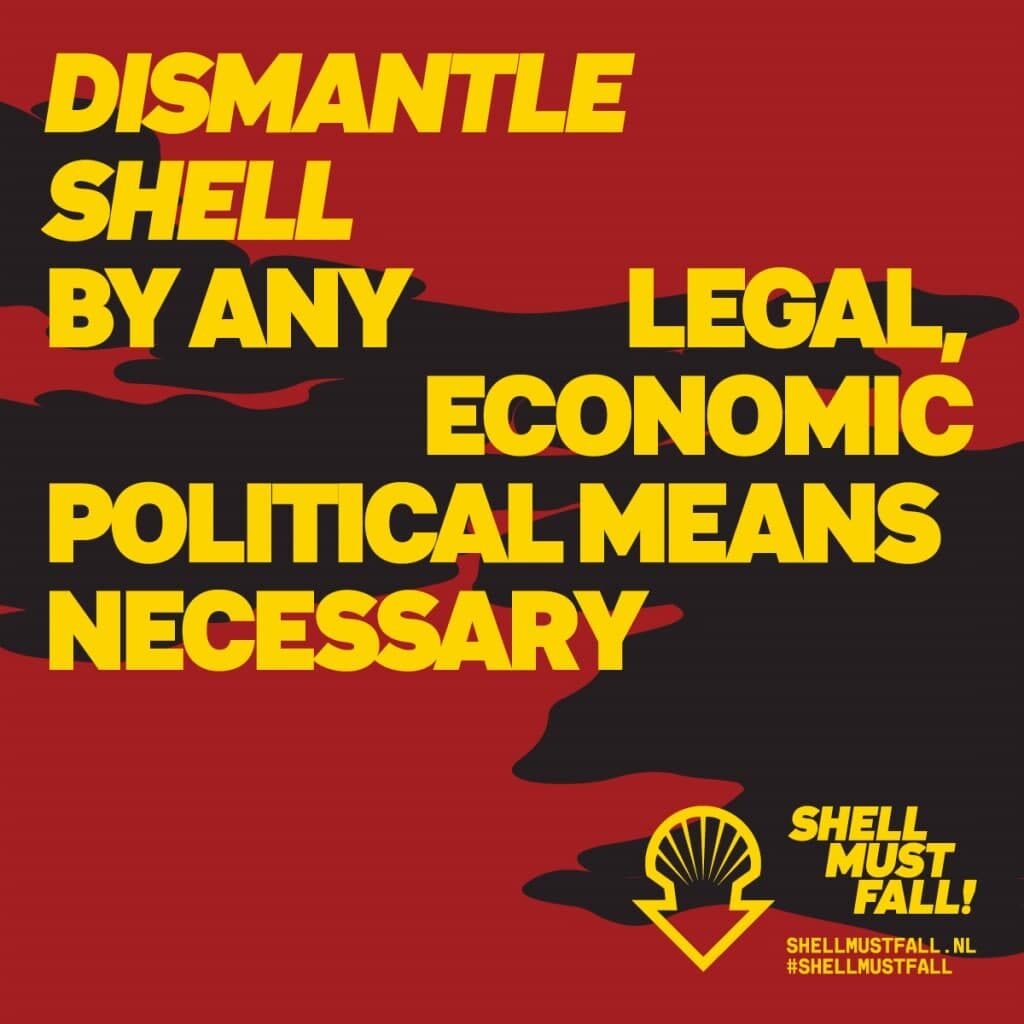
This practice is known as greenwashing, and it is shockingly common – in 2020 alone, 8 companies were taken to court for misrepresenting their environmental impact in advertising, including Quorn Foods and Windex. Even Shell, one of the most well-known oil and gas companies, attempts to greenwash itself by spending over $55 million a year on climate-related advertising.
As such, the continued call to fight for our present and future in the midst of the global public health crisis has pushed climate activists to find ways to maximize online spaces. Twitter storms, online action calls, and digital events of every kind are now the norm for many FFF groups, and recent Global Days of Action have embraced and made good use of online activities, as seen in other articles in this newsletter.
The strikes, summits, and successes of these past months were just the latest testament to the power of collective action to achieve change. No one individual can stop climate change, no matter how dedicated they might be to cutting out plastic and reducing their ‘carbon footprint’ – but together, we can unmask crooked corporations, win court cases, and perhaps someday soon put an end to the empty promises of our governments before it’s too late.

